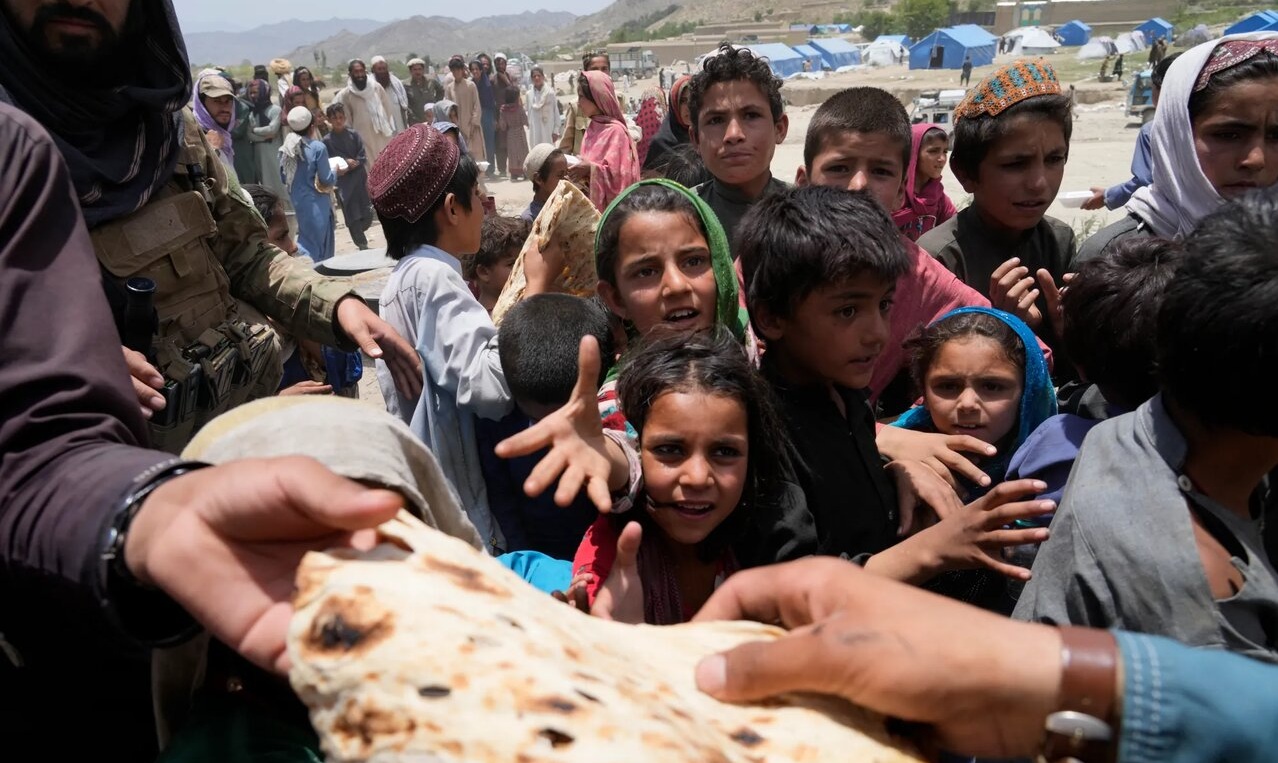Alwaght- The impacts of war between Taliban and Pakistan are not limited to economy but also influence the living conditions of the Afghans and Pakistanis. Reports suggest that as the border crossings are closed down, the movement, trade, and transit have fully stopped and during the clashes only Spin Buldak border crossing remained open for a limited time for expulsion of Afghan workers from Pakistan.
On Saturday, Pakistan reopened this major border crossing to commercial traffic and trade goods yesterday, but it remains unclear whether trade volumes have returned to normal. The status of other border crossings between the two nations, particularly the critical strategic route at Torkham, is still unresolved, with no timeline provided for their reopening.
The border closures have effectively halted bilateral trade. A representative from Pakistan's industrial sector confirmed that trade between the two neighbors has been suspended, with Pakistan shutting down crossings along their 2,600-kilometer border. The decision has left dozens of cargo trucks stranded on both sides.
According to Khanjan Alkozai, a board member of the Afghanistan Chamber of Commerce, five key border crossings of Torkham, Dand-e-Patan, Ghulam Khan, Angoor Ada, and Spin Buldak, are currently closed.
While temporary border closures following bilateral tensions are not new, the current shutdown marks the most significant clash between the Pakistani government and the Taliban administration since the latter's return to power in Kabul.
"The Spin Buldak, Ghulam Khan, and Torkham crossings are completely closed," Younus Mohmand, deputy head of the Afghanistan Chamber of Commerce, told DW. "All movement of vehicles and people is blocked, and we cannot conduct any exports or imports."
Afghanistan’s reliance on Pakistan trade routes
Afghanistan is a landlocked country. The country over the past years has pushed to reduce its reliance on Pakistan by boosting trade with Central Asian states and Iran. However, Pakistan remains the main transit and trade route for it.
Zia-ul-Haq Sarhadi, vice president of the Pakistan-Afghanistan Joint Chamber of Commerce, told Reuters: "The loaded vehicles, along with containers and cargo trucks, are stuck on both sides of the border." He detailed that the trucks are carrying not just perishable fresh fruits and vegetables, but also vital import-export goods and transit merchandise. Sarhadi warned that the continued blockade is inflicting millions of dollars in losses on both countries and their business communities.
The shutdown has also triggered a parallel humanitarian crisis, stranding deportees expelled from Pakistan with all their possessions at the closed crossings. Thousands of vehicles typically use these land crossings daily to move goods between the two nations. Experts now warn that a protracted closure will result in daily financial losses amounting to millions of Afghanis and rupees, crippling traders on both sides.
A senior Pakistani government official confirmed that all Pakistani state offices at the border, which handle commercial and administrative affairs, have also shuttered their operations due to the closure of the crossings to all people and vehicles. Analysts warn that such incidents will deepen poverty across the region. They note that Afghanistan, a nation heavily dependent on trade with Pakistan as it lacks coasts, stands to suffer the most severe damage from the ongoing standoff.
Pakistan and Afghanistan suffering damage
Analysts alarm that the military clashes between the Taliban and the Pakistani army will have severe economic repercussions for both nations. They predict the prolonged border closure will drive up the cost of raw materials and food in Afghanistan and slash exports of fresh fruit, saffron, carpets, and certain minerals to Pakistan. Furthermore, the standoff threatens the livelihoods of thousands of traders, truck drivers, laborers, and shopkeepers in border towns and commercial hubs, pushing them into unemployment. The Taliban administration itself is set to lose significant customs revenue.
Pakistani traders are also suffering losses. Afghanistan serves as a vital market for low-cost Pakistani goods. Experts caution that the halt in formal trade could fuel a rise in smuggling and deteriorate instability along the restive border region.
Hopes shattered
The Afghan-Pakistani relations have always been defined within a framework of geopolitical complexities, ideological competitions, and conflicting regional interests. With the return of the Taliban to power in August 2021, many in Pakistan expected that this comeback will usher in a new period of border stability, trade boom, and expansion of Pakistani regional influence. However, after four years, these hopes have not come true as the field realities show. In practice, increasing border attacks, the buildup of Tahreek-i-Taliban (TTP) militia, migration crisis, and trade tensions have sunken the two countries' relations into an unprecedented distrust.
Rising insecurity and attacks by the Taliban, which in 2024 alone have killed over 685 security personnel and 900 civilians, have destabilized Pakistan's investment climate. This has led domestic and foreign investors, particularly in the energy and transport sectors, to reduce their investment appetite, triggering escape of capital from the country.
Afghanistan ranks among Pakistan's most important export destinations for food products and industrial goods. The decline in exports to the country has placed additional pressure on Islamabad's trade balance. These disruptions, combined with rising costs for imports and transportation, have created a wave of inflation, compounding pressure on the livelihoods of the Pakistani people and intensifying social discontent.
Additionally, Afghanistan, which derives about 40 percent of its customs revenue from its shared border with Pakistan, has faced a severe drop in income due to the frequent closure of crossing points and the imposition of new tariffs, particularly a 10 percent duty on transit goods. This has directly weakened the financial capacity of the Taliban government.
In terms of investment, Afghanistan that is moving to attract foreign investors, especially from China and regional states, has faced a new hindrance as the instability and tensions with Pakistan have raised the investment risks and pushed to suspension many of the joint projects.



























